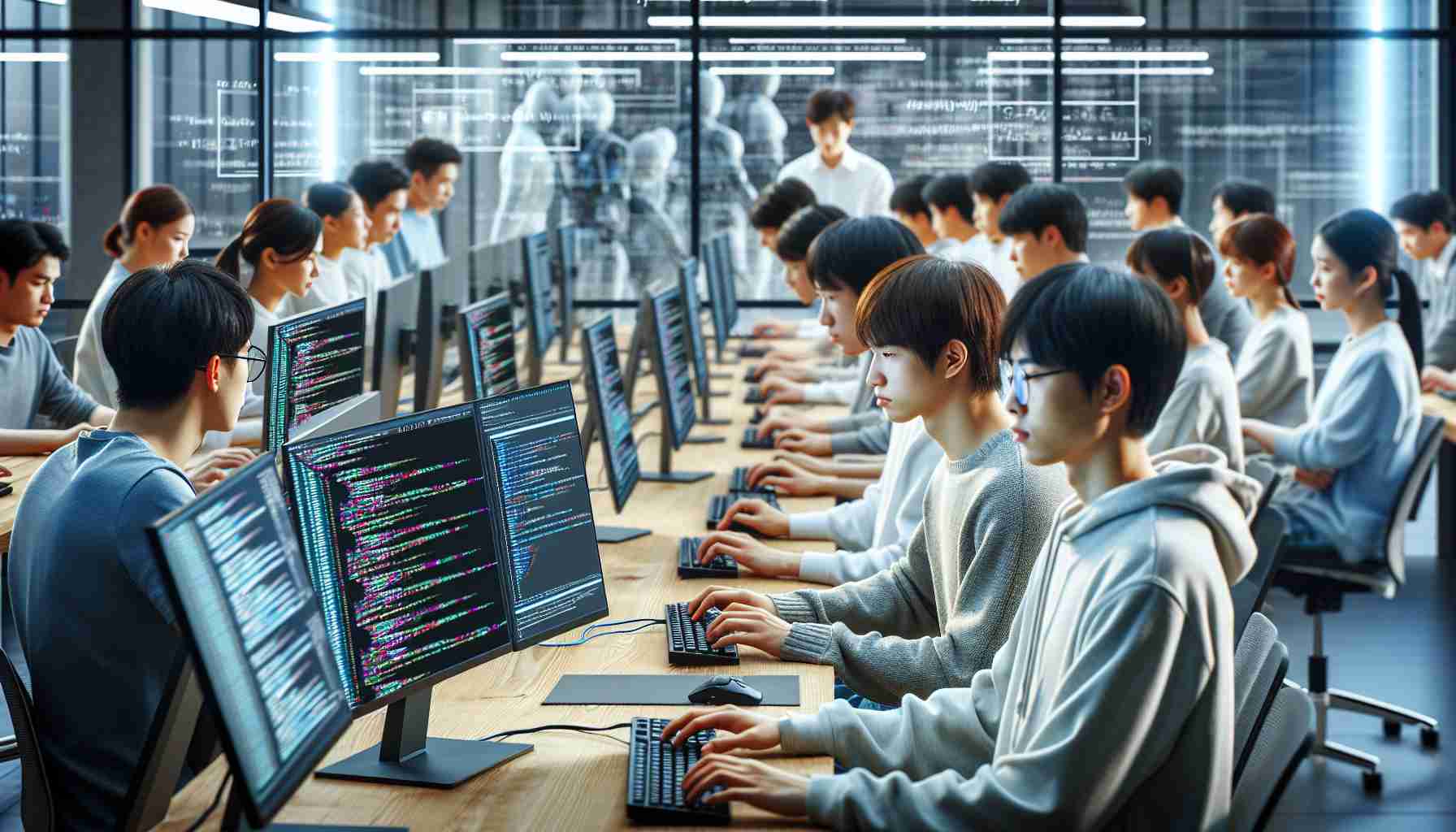In an initiative to guide the younger generation in the responsible use of burgeoning technology, the KT Group’s Hope Sharing Foundation is hosting the ‘Smart AI Contents Competition’. This event is specifically tailored for the nation’s youth and aims to encourage the meaningful and accountable employment of Artificial Intelligence (AI) tools.
The collaboration at the core of the competition sees multiple organizations, including the Korea Intelligence Information Society Promotion Agency, the Korea Educational Broadcasting System, the International Association for AI Ethics, and an AI Education Research Group. These entities share a common goal: to promote the healthy advancement of generative AI technology while minimizing its potential misuse.
For this contest, students from elementary to high school are invited to submit their visions across three distinct themes: the harmonious future of humans and robots, futuristic landscapes and smart cities in Korea 100 years later, and reimagined scenes from historical events or fairy tales. Submissions are open from July 1st to July 12th through the Foundation’s website, with the winners to be announced by July 30th.
Judges will evaluate the entries based on their communicative effectiveness, creative expression, proficient use of AI tools, and awareness of AI ethics. The top six works will receive a total of 2.5 million won in prize money, supported by the leaders of the organizing and sponsoring institutions.
The chairman of the International Association for AI Ethics, Professor Myung-Joo Kim, stated that early engagement and capability development in AI are crucial for shaping Korea into a powerhouse in the AI era.
The competition marks the beginning of a sustained campaign by the Foundation to instill ethical AI usage principles, building on their 20-year legacy of fostering a safe and responsible ICT culture, which has benefited approximately 2.5 million individuals. Lee Chang-jun, the head of the KT Group’s Hope Sharing Foundation, underlined the urgency to mitigate the risks of advanced generative AI technologies and reaffirmed their commitment to expanding the Foundation’s role in user-centered AI education.
Relevance of AI Competitions for Youth Development
AI competitions such as the Smart AI Contents Competition play a critical role in educational settings. By engaging young people in challenges that require the application of AI, competitions can stimulate interest in science, technology, engineering, and mathematics (STEM). Such events help students develop important skills including problem-solving, critical thinking, and creativity. Moreover, by emphasizing ethics in AI, it encourages participants to consider the broader impact of technology on society.
Key Questions and Answers:
1. Why focus on youth for AI education and competitions?
Engaging youth in AI education ensures that the next generation is prepared for future careers and can contribute to the development of ethical AI. Early exposure helps students to become fluent with the technology and better equipped to tackle the complexities associated with AI in the workforce.
2. What is the significance of the 2.5 million won prize money?
Prize money serves as an incentive for students to participate and invest effort into their submissions. It also provides recognition for their hard work and can be a stepping stone towards future opportunities in the field of AI.
Key Challenges and Controversies:
One of the chief challenges when involving youth in AI is balancing the excitement over the technology’s capabilities with a grounded understanding of its ethical implications. There can be controversies around the potential for AI to automate jobs, concerns about data privacy, and the ethical programming of AI systems. Ensuring students are also taught the potential downsides of AI and how to address them is crucial.
Advantages and Disadvantages:
Advantages of such competitions include promoting technology education, fostering innovation, and preparing the workforce of the future. However, disadvantages might arise if the focus on competition leads to excessive pressure on the participants or if the event does not adequately address diverse and equitable access to AI education for all students.
For those interested in learning more about Artificial Intelligence and its developments, you may visit the following links:
– IEEE
– Association for the Advancement of Artificial Intelligence (AAAI)
– UNESCO
– Nature
It’s important to provide reliable resources as part of education on AI. The above institutions offer a wealth of information that could be especially useful for students and educators interested in the evolution, ethical discussions, and practical applications of AI.

